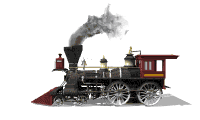
CIA Director's Remarks at the Reserve Officers Association, Minuteman Hall of Fame Ceremony
Excerpts from Remarks Delivered by Central Intelligence Agency Director
David H. Petraeus
at the Reserve Officers Association,
Minuteman Hall of Fame Ceremony
(January 30, 2012)
David H. Petraeus
at the Reserve Officers Association,
Minuteman Hall of Fame Ceremony
(January 30, 2012)
January 31, 2012
Well, thanks very, very much and good morning to you all, and thanks for a warm welcome! It is great to be with you all this morning and to be part of your 2012 National Security Symposium—the 86th, I note. And it’s great to be with so many with whom I’ve been privileged to serve in the past decade, in particular. Just out of curiosity, in fact, how many here have been deployed since 9/11—if I could just see a show of hands? How many have been deployed more than once since 9/11? How many more than twice since 9/11? And do any have three years or more deployment, just out of curiosity? If you’ve got three years or more deployed since 9/11, come on up here and we’ll see how quickly my guys [with coins] can respond. If not, we’ll do a great photo. Come on up here! [Audience members join Director Petraeus on stage for photo.]
Those are the individuals, and the others in here, and so many more that you’ve led and represented and served with who have truly made that video a true video and brought to life that statement “when the nation needed you, you responded to the call.” Colonel Williams, thanks very much for the kind introduction—overly kind. I must say that the response to such generous words typically has to be that I wish my dear departed parents had been here to hear them; my father would have enjoyed them, and my dear old mother might have actually believed them!
Well, I’m truly humbled by the award I receive today, and I have a bit more to say about that. But before doing so, I do want to thank Colonel Williams, I do want to thank General Davis, and I do want to salute them and all of your leadership for years of military service. These two alone account for well over a half century in uniform for our country. And I want to salute as well their tremendous leadership of the Reserve Officers Association. Indeed, I salute not only them but the rest of the leadership of ROA for recognizing citizens and soldiers who advance the cause of our nation’s security and who very much embody the qualities of service and leadership exemplified by one of the Association’s key founders, and that would be, of course, General John “Black Jack” Pershing.
It is as I mentioned a pleasure to see in the audience so many with whom I served on the battlefield over the past decade—an honor to be with this unique group and its mix of former and current reservists, members of the ROTC, over there. I hope you’re getting credit for this for a class. They will, of course, lead the next generation of reservists. I salute all of you for your selfless dedication and service to our country!
I also thank the Association for taking on an issue of interest in my household—particular interest—ensuring that a number of programs for our military families are well supported. As some of you may know, my wife, Holly, is an Assistant Director of the Consumer Financial Protection Bureau, and she is helping to lead the fight against financial rip-offs that target our troopers and their families. [applause] Thank you. I will note that that was an applause line—to her, that is! But as all of you know, bullets and IEDs make no distinction downrange between those of the reserve and active components of our military—and neither do predatory lenders. So Holly and I are very pleased that you are pushing this issue, and she asked that I convey a well done—a Bravo Zulu—to you on it!
Well, it is again an enormous honor to receive the Minuteman Hall of Fame Award. In truth, I have received a few awards in recent years, but it’s certainly rare to be inducted into a Hall of Fame. Noting, of course, the fine line between fame and infamy—I’m glad that, at least for today, I’ve avoided achieving the latter. I would quickly add, however, that I owe this honor to the men and women in uniform with whom I was privileged to serve, along with the CIA officers and diplomats who were shoulder-to-shoulder with our troopers, all in helping to safeguard our nation, particularly, of course, over the course of the last decade. Thanks to the exceptional skill and selfless valor of those who answer our country’s call—active duty and reserve components, uniformed and civilian—we achieved hard-fought progress in Iraq; we arrested and reversed the Taliban’s momentum in many areas of Afghanistan; and we achieved successes in other fronts in the war against al-Qa‘ida and its affiliates. None of this was easy. We often used to say, in fact that it is all hard, all the time. But it was done. And it is, again, on behalf of those with whom I have been privileged to serve since 9/11, that I accept this award today.
As I thought about my remarks today, I thought I might share some of the especially memorable moments in my career over the past decade in particular, in which I had the honor of soldiering alongside Reserve Officers and those they have led, for our reserve components have played an absolutely essential role in Iraq and continue to do so in Afghanistan and, in fact, in many other locations in my old areas of responsibility and elsewhere around the world. Indeed, in those countries, without our citizen-soldiers, our armed forces simply could not fully carry out America’s global commitments to keep our nation secure.
Four years ago, almost to the day—it was on 18 January—I had the great privilege on the 100th anniversary of the US Army Reserves to reenlist 100 Reservists. I was the commander in Iraq at the time, and it was a true honor to use that occasion to thank all of our great citizen-soldiers for their considerable contributions, particularly as we were still engaged in the so-called Surge there in Iraq. I was joined for the occasion by the commander of the Army Reserve, the great Lieutenant General Jack Stultz—a Minuteman Hall of Famer himself—who observed that those fine men and women were part of “the most professional, most competent, best trained, most dedicated Reserve force we’ve ever had.” I certainly agreed with his assessment then, and I still do very much today. Indeed, the success of the Surge in Iraq was due in no small part to the impressive skill and character of our reserve components, whose personnel played a critical role at a critical moment in the campaign. Many in this room today, and thousands more in your organization, were part of that critical endeavor—indeed, not just part of it, but leaders in it.
As was noted during the introduction, during my final years in uniform, I had the privilege of holding six straight general officer commands—five of which were in combat—and I repeatedly saw Reservists in all branches of the military bring warrior and civilian skills to the fight. That combination has, of course, been particularly effective and particularly important in the complex environments we have been facing in the past decade. As all here know, in addition to the traditional demands of the battlefield, Iraq and Afghanistan often required our troopers to be more than just warriors—to be diplomats, builders, trainers, advisers, service providers, economic developers, and mediators, to name just a few of their roles. Citizen-soldiers have performed these diverse tasks in particularly impressive fashion, and, in so doing, they have demonstrated the unique edge—the unique qualities—that Reservists bring to every military endeavor.
Indeed, far from playing a supporting role to active component elements, our reserve components have been integral in the execution of each of our missions. One especially notable case with which I’m very familiar is from 2004, when it was clear that we needed to form and train a new Iraqi Army and Iraqi police forces, and to do so quickly—no small task in light of the challenges in Iraq at the time, for the fact those elements had been disestablished less than a year earlier. As some of you may recall, I’d only been home briefly after commanding the 101st Airborne Division in the first year in Iraq, when I was asked to return to lead the effort to train and equip the Iraqi Security Forces. This was a particularly daunting task, one that we occasionally described as attempting to build the world’s largest aircraft, while in flight, while it was being designed, and while it was being shot at! And we also had to develop our own organization—the Multi-National Security Transition Command–Iraq—or MNSTC-I, for short—to perform this enormous mission. And there was no existing unit or headquarters identified to serve as the foundation for the effort. So, we turned to the 98th Division (Institutional Training), and its more than 3,000 Reservists based in the northeastern United States. And as we worked to establish MNSTC-I in the fall of 2004, we were augmented by somewhere close to 1,000 members of the 98th to staff various headquarters and to advise and mentor the units of three Iraqi combat divisions and a number of other elements.
One of the advantages of having the 98th do the work was that, previously, our effort had been staffed by individual personnel from various US services and units with different rotation policies. We didn’t have continuity, to put it mildly. Building an army from scratch required gaining the trust of the Iraqis and then mentoring and coaching them on how to conduct actual operations. The Reservists’ skill in training others—combined with the uninterrupted opportunity to form personal connections—made a considerable difference. Now, for many of our Reservists, it was the first time they had been activated and, for most, their first overseas assignment. But they quickly drew on their experience training American soldiers, and rose to the challenge of working with soldiers from different cultures, different religious sects, and varying degrees of literacy. The members of the 98th adapted quickly to the job and steadily improved the training and equipping programs on which subsequent Reserve divisions and active component units would build. They can be justly proud of their accomplishments, as can those who followed them. And, just out of curiosity, are there any here from the 98th or the follow-on units who helped with the train-and-equip mission in Iraq? Thanks to you for what you did in a very nonstandard, challenging environment and mission, and for what was accomplished.
In another case, early last year in Afghanistan, Corporal Eric DeHart, a Reservist from Wisconsin and an engineer by trade, came up with a truly life-saving solution to reduce the ability of the Taliban to place explosives in the drainage culverts under road beds. DeHart developed a cone made of steel bars that would fit a variety of openings, allowing water and debris to pass but not the emplacement of IEDs. He spent more than 50 hours of his own time cutting and welding to perfect the prototype, and he even wrote a field manual on how to install it. It was an immediate success. In fact, units of the great 101st Airborne Division quickly adopted the device, placing more than 30 throughout Kandahar Province as soon as it was available. The DeHart device has since spread to other units throughout Afghanistan, and they are to this day building similar devices in a variety of shapes. Corporal DeHart has returned home to his wife and daughter, but he can be proud that he made a lasting difference—and prevented untold numbers of deaths and injuries through his initiative and expertise.
In truth, the selfless heroism of our nation’s citizen-soldiers inspires all of us. Each Reservist makes a difference. Collectively, they are doing the hard work our country requires, as your video made clear, and we owe them and their families and their communities at home our deepest gratitude.
Another Reservist I remember particularly well is Master Sergeant Juanita Milligan, whose courage and selfless service I had the privilege of recognizing by awarding her a medal at the Truman Foundation in 2006. A mother of three in the US Army Reserve, she had served our nation for nearly 20 years in a variety of roles in transportation and personnel units. She was gravely wounded in her second deployment to Iraq in early 2004 when an improvised explosive device blasted into her Humvee. Seeing the bomb a split-second before it went off, Master Sergeant Milligan jumped across the vehicle to try to pull her gunner down and inside. He was okay; however, she sustained severe injuries, including shrapnel throughout her body, the loss of part of her right arm, and a femur broken in three places.
Master Sergeant Milligan’s subsequent recovery was truly inspirational as she endured countless surgeries, four hours of therapy each day, and the pain that accompanied her efforts to regain use of her right hand. She was finally able to stand for the first time just before Thanksgiving the year after being wounded. And, despite all of her challenges, despite the injuries and pain, she was described by one who knew her at Walter Reed as, “The most upbeat person I know.”
Master Sergeant Milligan defines the selfless dedication of our citizen-soldiers—a mother who twice answered the call to military duty, leaving behind family, friends, and community. In truth, she is not just a member of what Tom Brokaw has termed the New Greatest Generation—she exemplifies it, and she is a leader of it. Her service—especially the character of her service—has been truly inspirational.
Our reserve components have, in short, clearly distinguished themselves in a variety of combat and support roles in the decade since 9/11. Some 385,000 members of our reserve components, in fact, have served in Iraq or Afghanistan during that time, and over 30,000 continue to serve on deployment in those theaters, contributing their valuable skills, experience, and expertise. Indeed, since 1990, reserve component members from various branches of the military have mobilized and deployed in support of every American military operation, including not just combat operations, but peacekeeping and humanitarian missions as well. In fact, reserve component elements continue to serve in more than 70 countries, demonstrating that our citizen-soldiers are not only a strategic reserve, but a key component of our operational forces. In fact, some military roles central to our nation’s defense are conducted solely by reserve units. Tasks such as weather reconnaissance, aerial spraying, biological detection companies, civil affairs commands, and railway units are among them, and there are many others.
We have all have heard about the military realignments underway, and I’m confident that our reserve components will be duly recognized for the high value they bring to the overall force structure. Indeed, there has never been a greater need for the skills our reservists uniquely provide. As the US Marine Corps Commandant recently stated, for example, “in some ways a Reserve battalion is even more effective at counterinsurgency than a regular battalion,” noting that Reservists bring a breadth and depth of skill sets beyond warfighting that can be leveraged in the endeavors in which we are currently engaged. These capabilities include firsthand experience in law enforcement, various trades, medical care, agriculture, community leadership, and business skills—all of which can at times be far more effective than traditional weaponry. Security cooperation tasks—another mission set imperative in the years ahead—are also often ideally suited for Reserve units. And we should note that those increasingly important tasks are of a broad scope and high skill level that allow much of the training to be conducted prior to mobilization, shortening the total activation time and lengthening the time a unit can be deployed. I’m sure that such factors were carefully considered during the recent formulation of the new Department of Defense strategy and budget, as they clearly reflect hugely important roles for our reserve components in the years ahead.
Well, before I conclude, I want to thank you again for honoring me with this award—and to note again that I accept it only inasmuch as I’m able to do so on behalf of the soldiers and civilians I was privileged to lead over the past decade and whose hard work and selfless dedication have served our nation so well. This award testifies to their sacrifices, and to those of their families and loved ones. It is, in truth, their award far more than it is mine.
I would add further that, in receiving this honor, I feel very privileged to join the company of those who have received it before, including, for example, Admiral May, General Stultz, and General Pace. Beyond that, though, and of the most importance, I salute all the members of your organization and all those that you and your fellow members lead in serving causes larger than self, individuals who have taken their place in a long line of patriots that extends back to those who founded our great Republic.
President George Washington—the epitome of a citizen-soldier—once captured eloquently the feelings of those who serve our nation: “I was,” he reflected, “summoned by my country, whose voice I can never hear but with veneration and love.”
And so it has been my great privilege this morning to accept the honor of being inducted into the Minuteman Hall of Fame on behalf of all those who likewise have been summoned by our country, whose voice we can never hear but with veneration and love as well.
Thank you very much.
Posted: Jan 31, 2012 02:36 PM
Last Updated: Jan 31, 2012 02:38 PM









































































































